"Instead of culture, there are lice." Anti-Russian postcards from the First World War
By Pictolic https://pictolic.com/article/instead-of-culture-there-are-lice-anti-russian-postcards-from-the-first-world-war1.htmlThe war is waged not only on the battlefield. The most important element of large—scale armed conflicts that require the ideological mobilization of the entire nation is propaganda. We believe many of you have seen Soviet illustrations that disgust German soldiers and Nazism in general. Similar pictures were printed on the other side of the barricades — in relation to the Soviet government. And during the First World War, German agitation developed, accordingly, the right attitude towards Emperor Nicholas II and the people he ruled.
(13 photos in total)
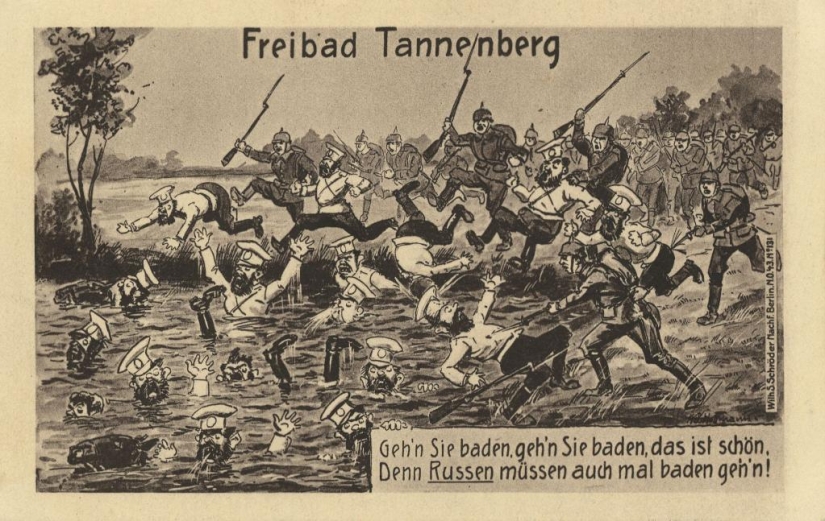 Source: LiveJournal/humus
Source: LiveJournal/humus
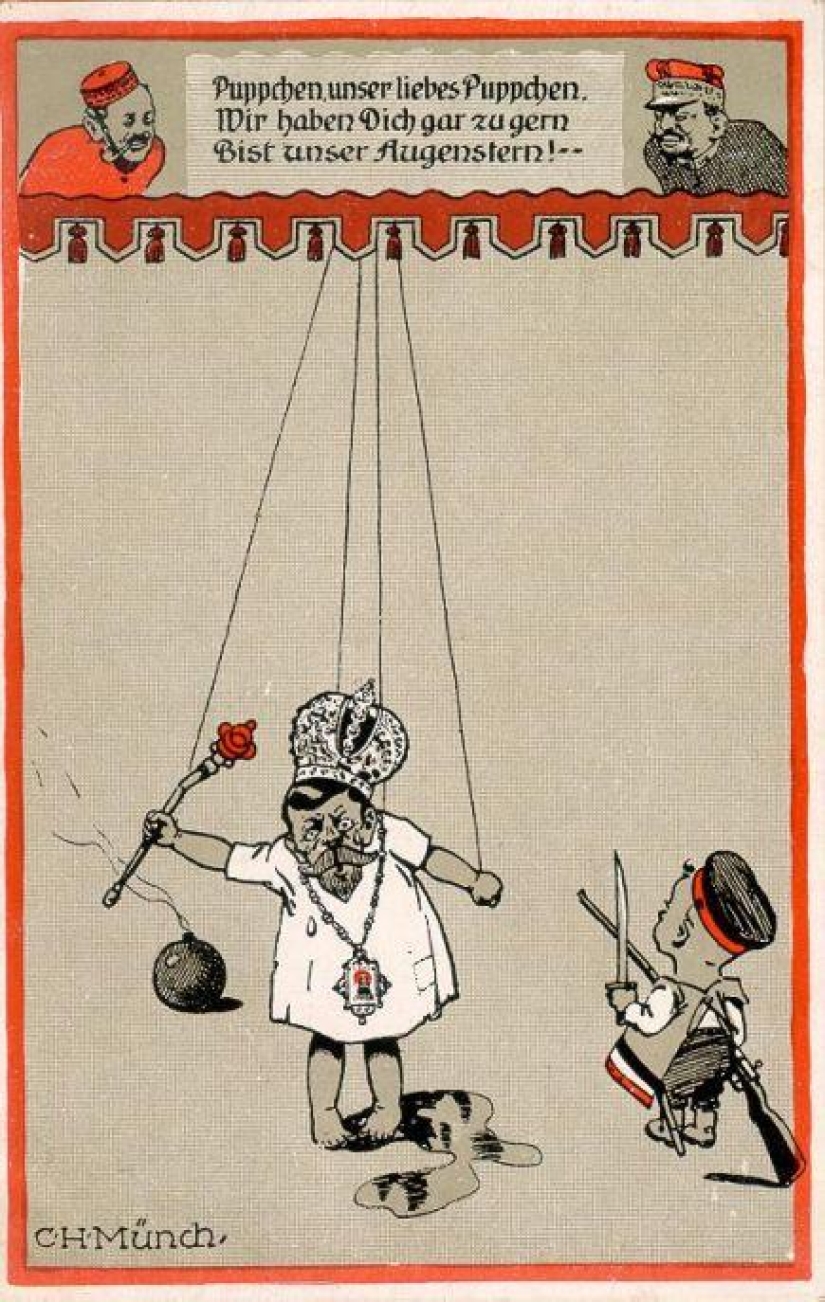
"Doll, our dear doll."
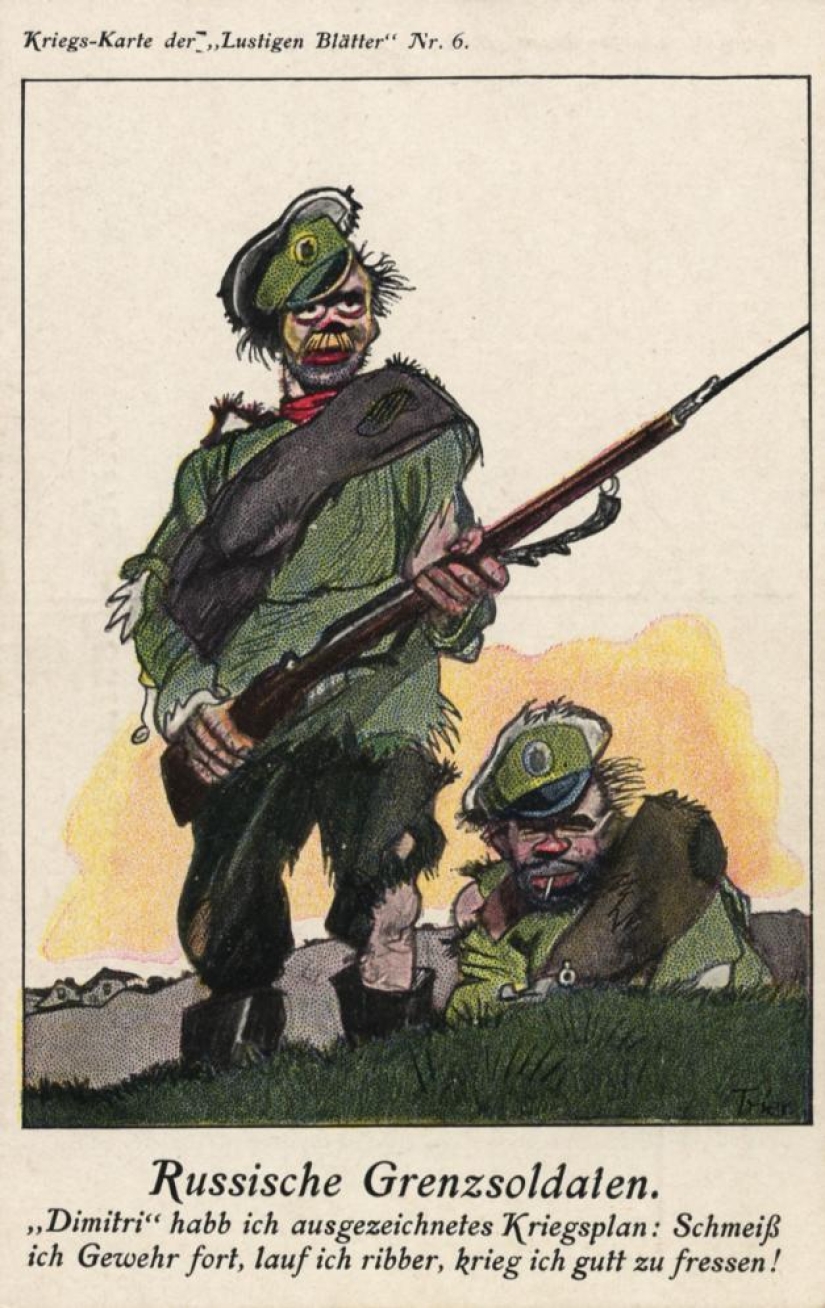
"Russian border guards. Dmitry, I have a great plan: we drop our weapons and run!"
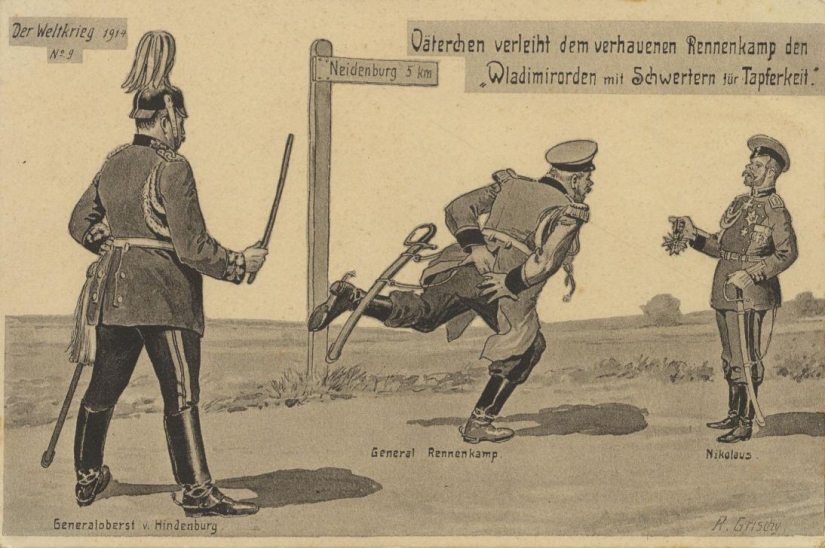
"Nicholas II awards the Order of St. Vladimir for courage in fleeing from the battlefield."
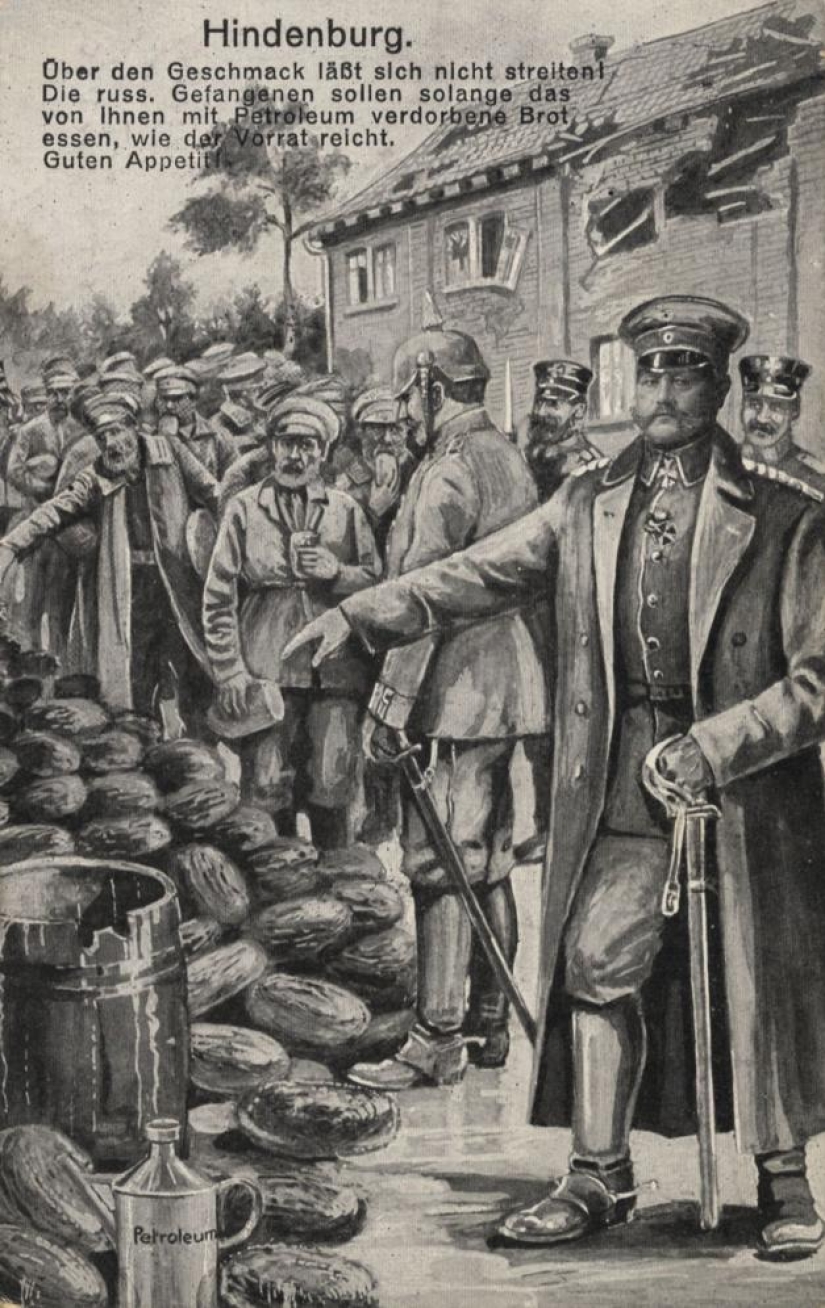
"Hindenburg. Tastes are not disputed. Russian prisoners of war found bread with kerosene. And they ate it. Bon appetit!"
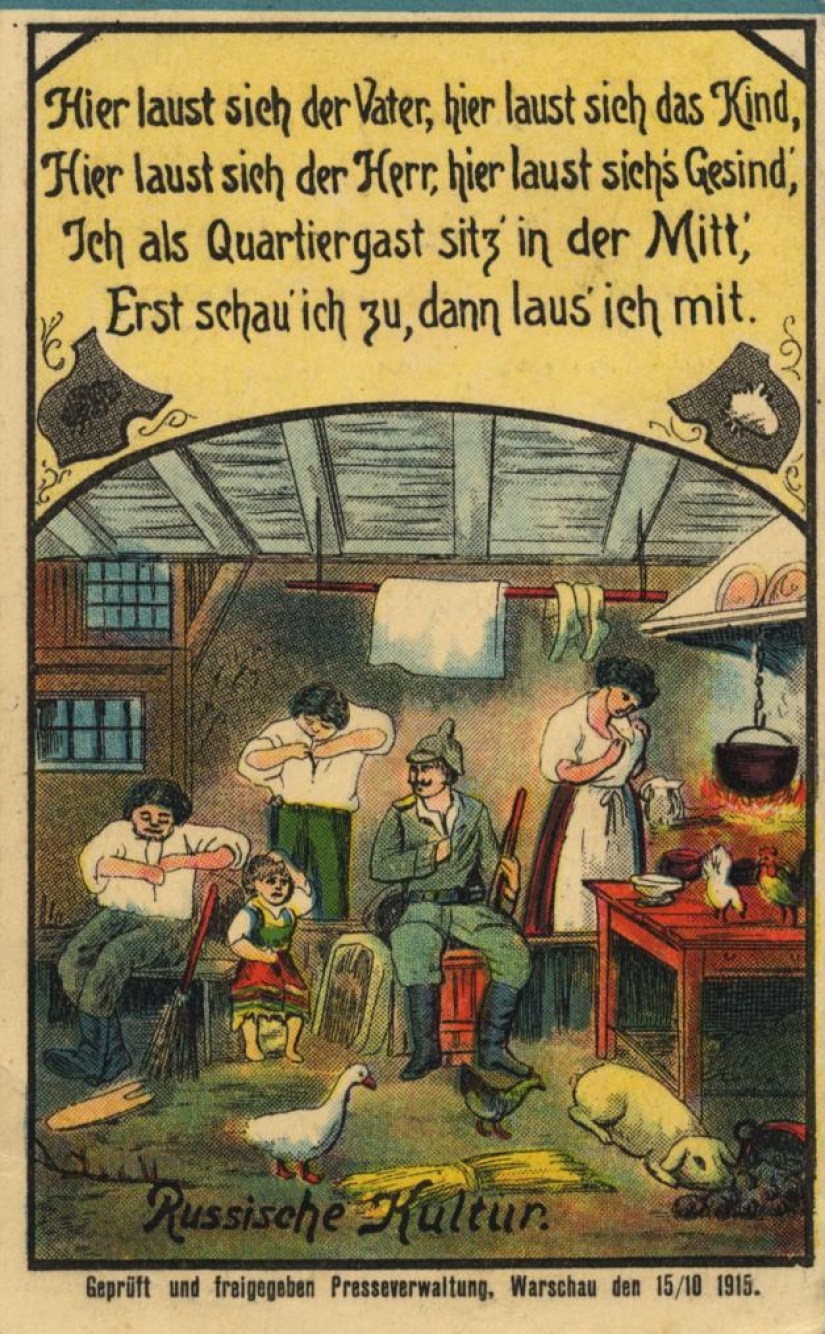
"Russian culture".
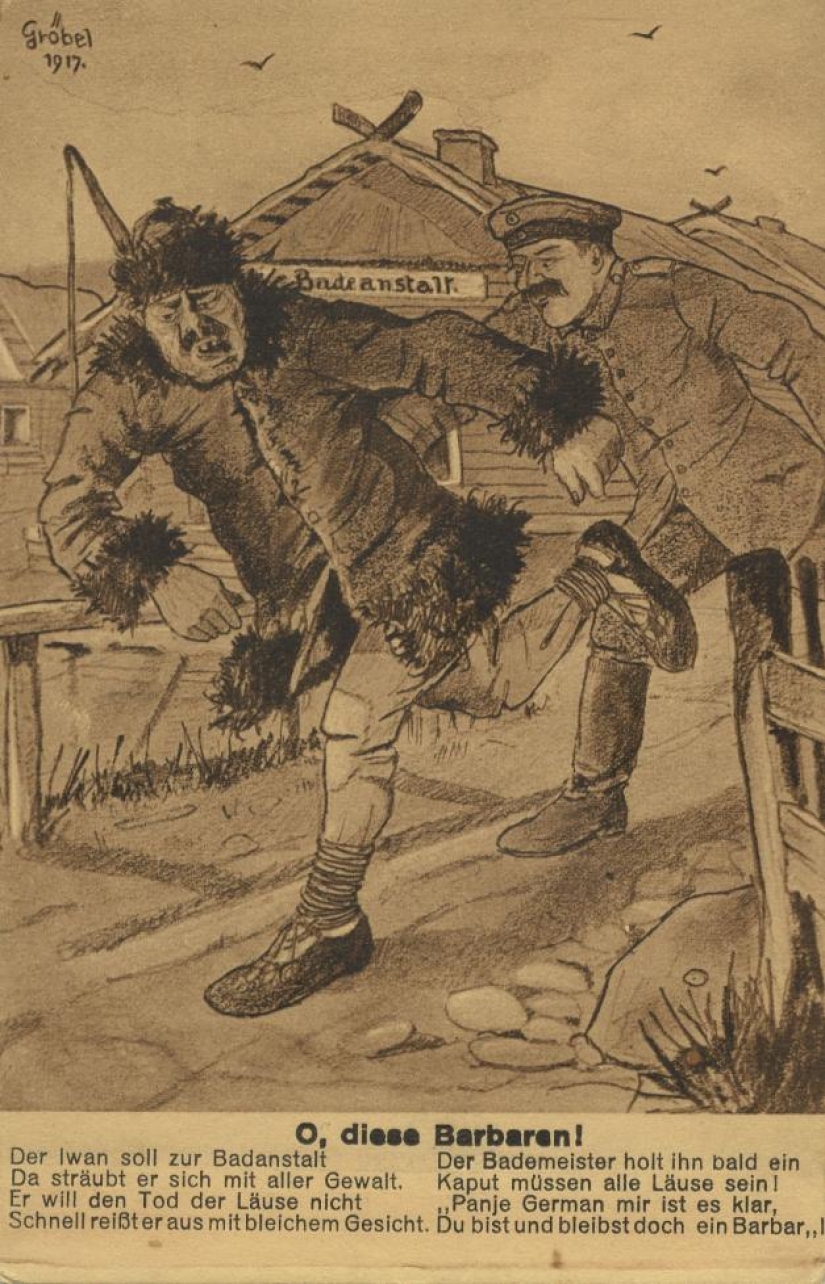
Oh, these barbarians! Ivan runs away from the bathhouse as from a fire.
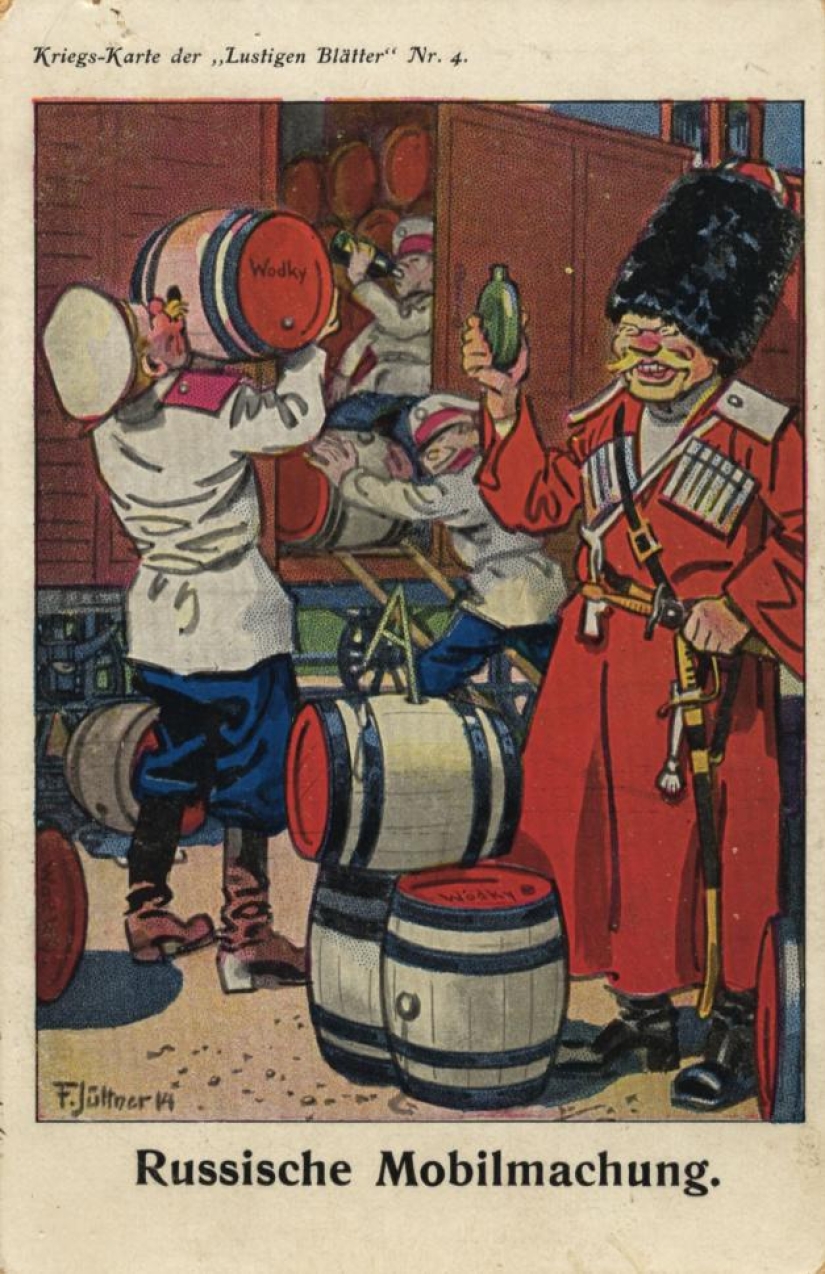
"Russian mobilization".
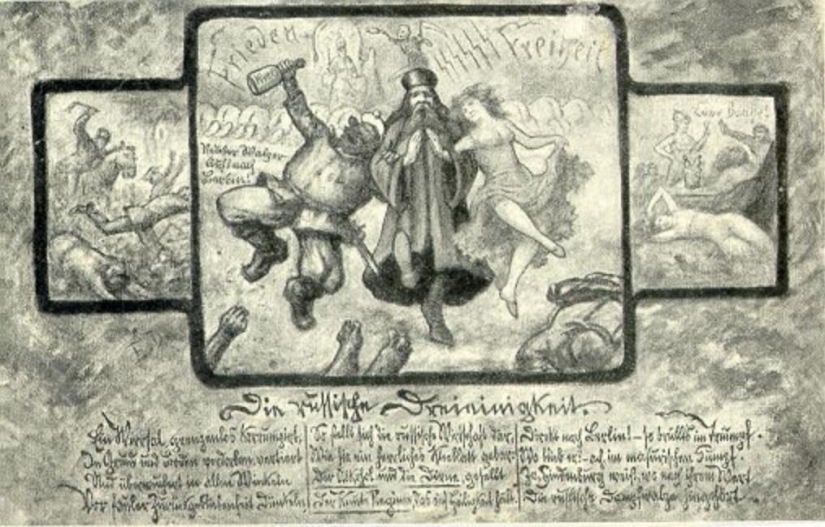
"Russian Trinity".
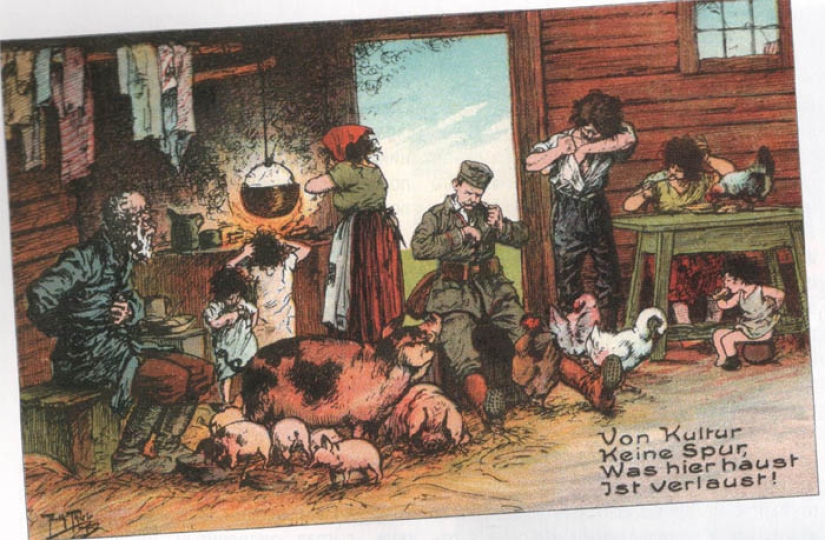
"There is no trace of culture. The only thing that exists is lice."
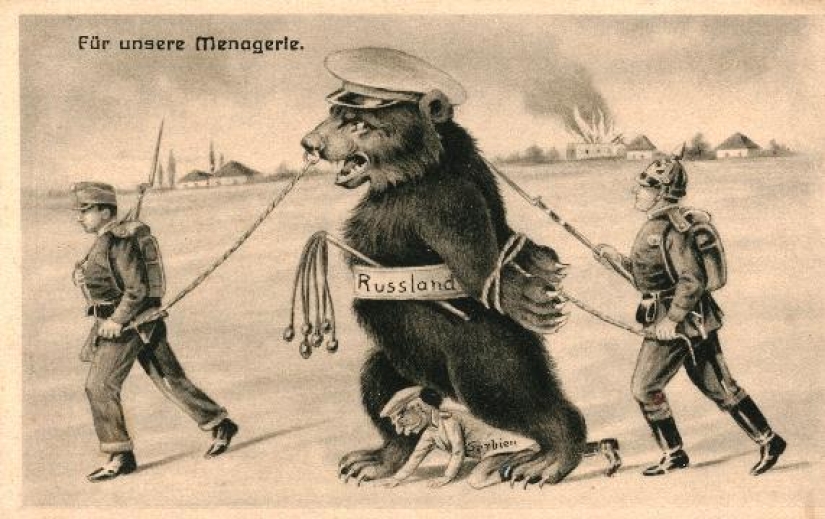
"For our menagerie."
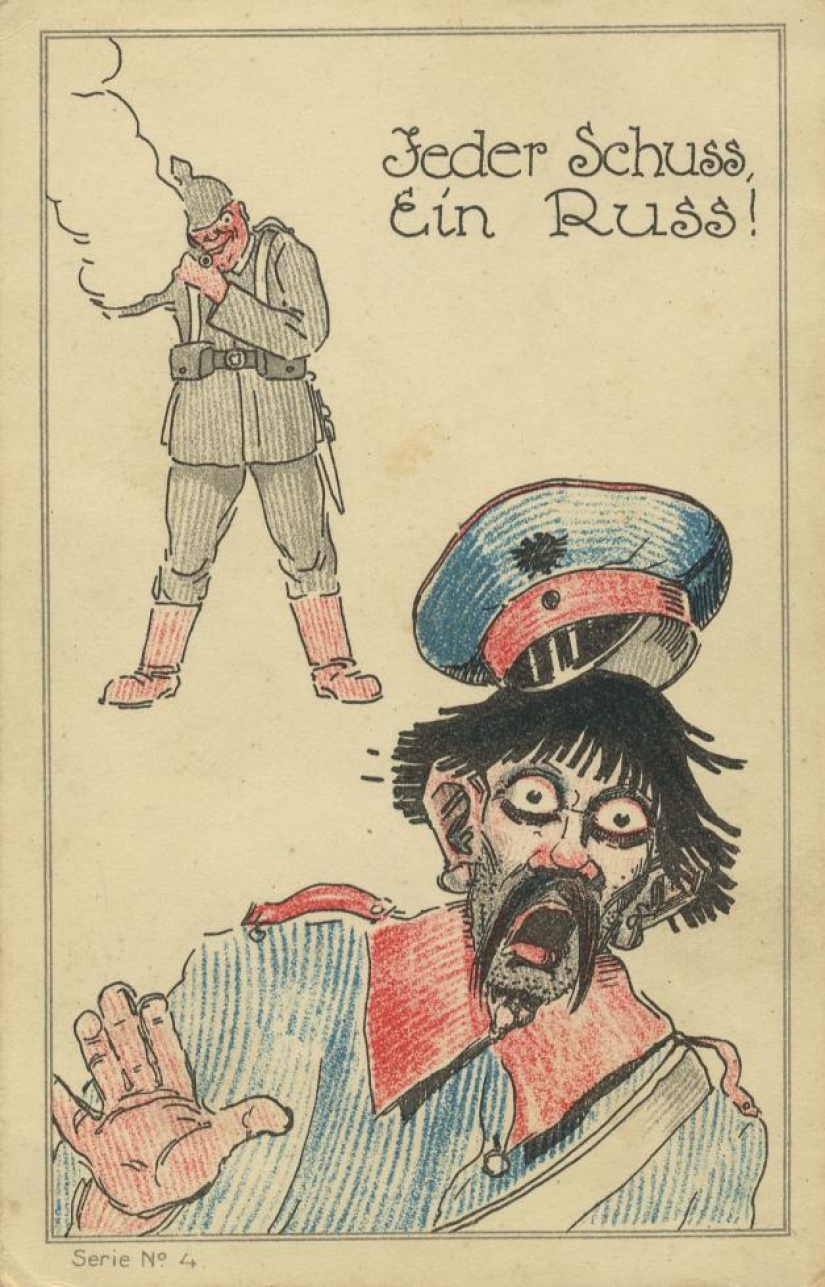
"Shot in the dirty bullseye."
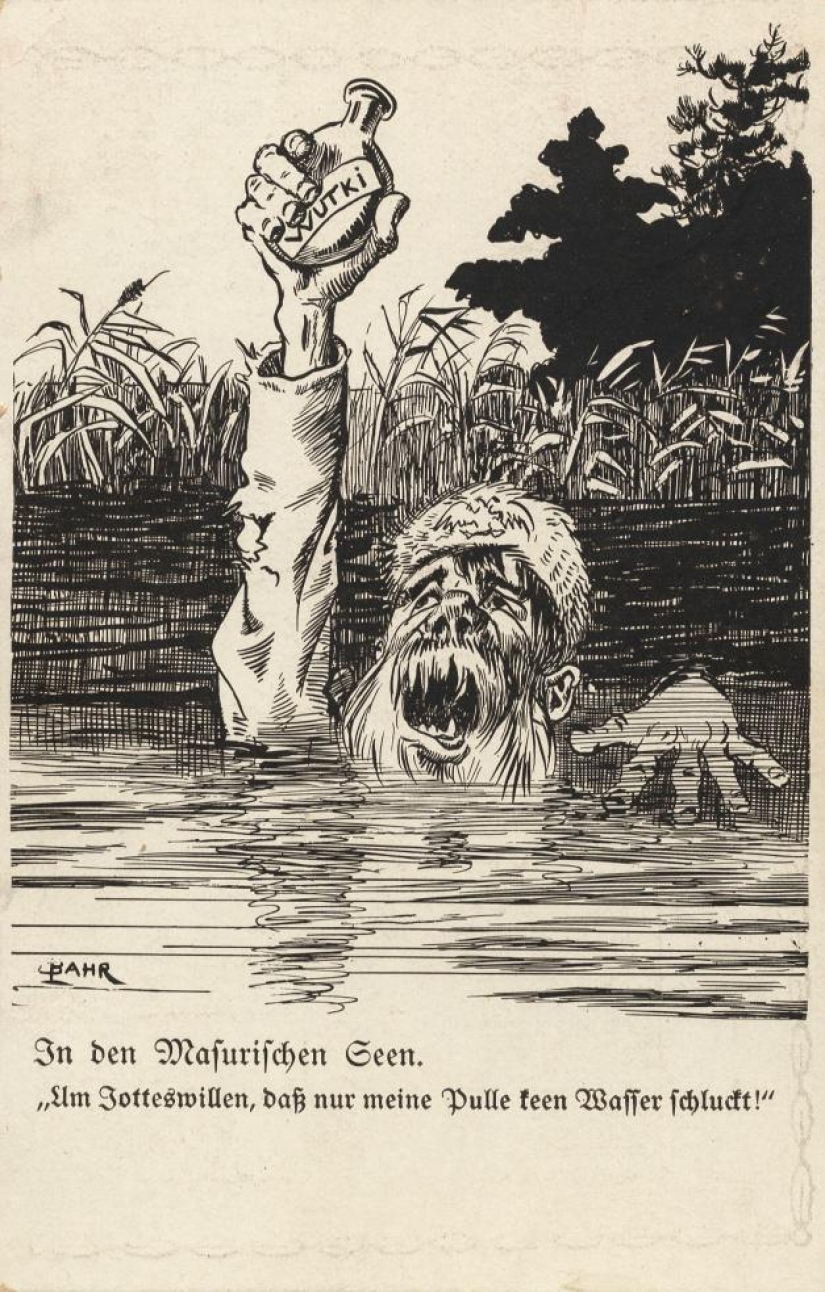
"Swimming in the Masurian lakes".
Keywords: Nicholas II | Postcards | World War I | Propaganda
Post News ArticleRecent articles

Many have heard about this disease, like rabies, can even say that it is a result of the animal bite, and the victim will have to ...

The upcoming trip is always so joyful and exciting, and it seems that nothing can spoil the upcoming vacation! But drawing up a ...
Related articles

In the first two decades of the XX century, against the background of technological progress, the development of photography, ...

Today, the whole country congratulates the veterans-heroes and heirs of the immortal glory of Russian soldiers and officers, who at ...

In 1915-1917, the Imperial Train became one of the permanent residences of the last Russian emperor. This train also included a ...

The scooter, once considered nothing more than a child's toy, has become a full-fledged personal transport these days. Our streets ...